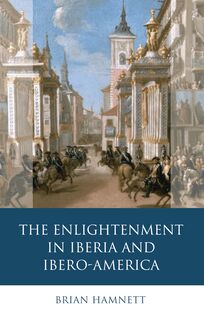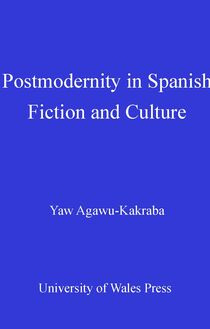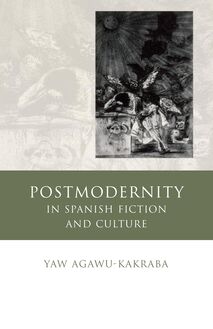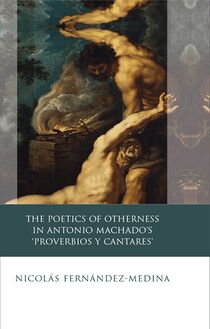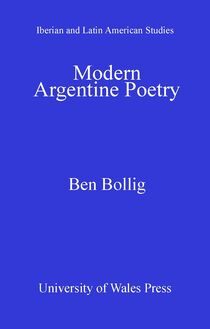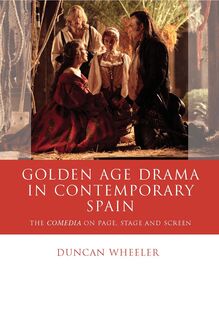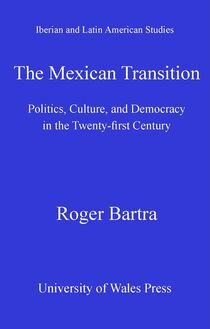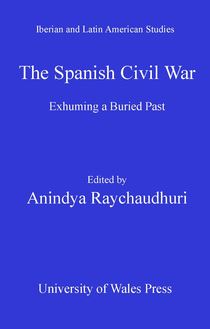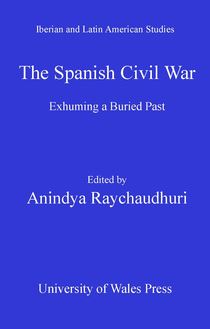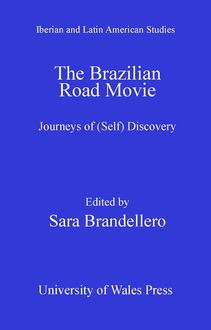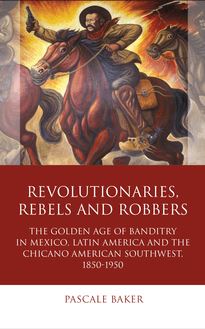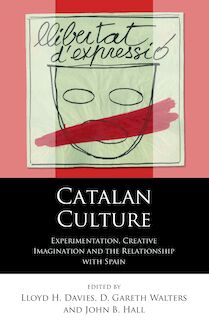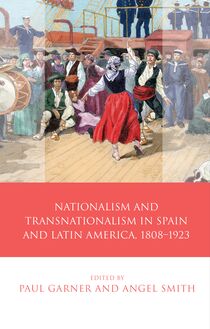-
 Univers
Univers
-
 Ebooks
Ebooks
-
 Livres audio
Livres audio
-
 Presse
Presse
-
 Podcasts
Podcasts
-
 BD
BD
-
 Documents
Documents
-
- Cours
- Révisions
- Ressources pédagogiques
- Sciences de l’éducation
- Manuels scolaires
- Langues
- Travaux de classe
- Annales de BEP
- Etudes supérieures
- Maternelle et primaire
- Fiches de lecture
- Orientation scolaire
- Méthodologie
- Corrigés de devoir
- Annales d’examens et concours
- Annales du bac
- Annales du brevet
- Rapports de stage
La lecture à portée de main
272 pages
English
Découvre YouScribe en t'inscrivant gratuitement
Je m'inscrisDécouvre YouScribe en t'inscrivant gratuitement
Je m'inscris
Obtenez un accès à la bibliothèque pour le consulter en ligne
En savoir plus
En savoir plus
272 pages
English
Obtenez un accès à la bibliothèque pour le consulter en ligne
En savoir plus
En savoir plus

Description
This is the first feminist and postcolonial analysis of Galician cultural nationalism and its relation to the Spanish state and Spanish centralism.
Introduction: When Did We Become Sentimental? Colonial Stereotype, National Discourse and Gender in Galicia and Spain Chapter One: Shaping Galician Femininity: Method, Metaphor and Myth in Augusto Gonzalez Besada's Cultural Writing Chapter Two: Purifying the National Model: Questions of Morality and Sentimentality in Eugenio Carre Aldao's Writing Chapter Three: Competing Manhoods: Political Nationalism vs. Sentimental Regionalism in Antonio Couceiro Freijomil Chapter Four: Sexing the National Father: Between Promiscuity and Decorum in Ricardo Carvalho Calero Chapter Five: Breaking Out of the Normal: From Pineirismo to Normalization in Contemporary Galician Culture Afterword: The Man Who Married Galicia: Towards a Postcolonial Critique of Galician Sentimentality
Introduction: When Did We Become Sentimental? Colonial Stereotype, National Discourse and Gender in Galicia and Spain Chapter One: Shaping Galician Femininity: Method, Metaphor and Myth in Augusto Gonzalez Besada's Cultural Writing Chapter Two: Purifying the National Model: Questions of Morality and Sentimentality in Eugenio Carre Aldao's Writing Chapter Three: Competing Manhoods: Political Nationalism vs. Sentimental Regionalism in Antonio Couceiro Freijomil Chapter Four: Sexing the National Father: Between Promiscuity and Decorum in Ricardo Carvalho Calero Chapter Five: Breaking Out of the Normal: From Pineirismo to Normalization in Contemporary Galician Culture Afterword: The Man Who Married Galicia: Towards a Postcolonial Critique of Galician Sentimentality
Sujets
Informations
| Publié par | University of Wales Press |
| Date de parution | 15 juillet 2013 |
| Nombre de lectures | 0 |
| EAN13 | 9780708326541 |
| Langue | English |
Informations légales : prix de location à la page 0,2174€. Cette information est donnée uniquement à titre indicatif conformément à la législation en vigueur.
Extrait
IBERIAN AND LATIN AMERICAN STUDIES
Galicia, a Sentimental Nation
Series Editors Professor David George (Swansea University) Professor Paul Garner (University of Leeds)
Editorial Board David Frier (University of Leeds) Lisa Shaw (University of Liverpool) Gareth Walters (Swansea University) Rob Stone (University of Birmingham) David Gies (University of Virginia) Catherine Davies (University of Nottingham) Richard Cleminson (University of Leeds)
IBERIAN AND LATIN AMERICAN STUDIES
Galicia, a Sentimental Nation
Gender, Culture and Politics
HELENA MIGUÉLEZCARBALLEIRA
UNIVERSITY OF WALES PRESS CARDIFF
© Helena MiguélezCarballeira, 2013
All rights reserved. No part of this book may be reproduced, stored in a retrieval system, or transmitted, in any form or by any means, electronic, mechanical, photocopying, recording or otherwise, without clearance from the University of Wales Press, 10 Columbus Walk, Brigantine Place, Cardiff, CF10 4UP.
www.uwp.co.uk
British Library CataloguinginPublication Data A catalogue record for this book is available from the British Library.
ISBN 9780708326534 ebook ISBN 9780708326541
The right of Author to be identified as author of this work has been asserted by him in accordance with sections 77 and 78 of the Copyright, Designs and Patents Act 1988.
The publication of this book has been made possible through a grant from the Spanish Ministry of Science and Innovation (FFI2009–08475/FILO) and the Arts and Humanities Research Council Fellowship Scheme.
Typeset by Prepress Projects Ltd, Perth, UK Printed in Great Britain by CPI Antony Rowe, Chippenham, Wiltshire
Series editors’ foreword
Acknowledgements
Note to the reader
Contents
Introduction: When did we become sentimental? Colonial stereotype, national discourse and gender in Galicia and Spain
Chapter 1: Shaping Galician femininity: method, metaphor and myth in Augusto González Besada’s cultural writing
Chapter 2: Purifying the national model: questions of moral ity and sentimentality in Eugenio Carré Aldao’s writing
vi
vii
i
x
1
37
69
Chapter 3: Competing manhoods: political nationalism versus sentimental regionalism in Antonio Couceiro Freijomil 101
Chapter 4: Sexing the national father: between promiscuity and decorum in Ricardo Carvalho Calero
Chapter 5: Breaking out of the normal: frompiñeirismoto normalization in contemporary Galician culture
Afterword: The man who married Galicia: towards a postco lonial critique of Galician sentimentality
Notes
Bibliography
135
176
207
222
228
Series editors’ foreword
Over recent decades the traditional ‘languages and literatures’ model in Spanish departments in universities in the United Kingdom has been superseded by a contextual, interdisciplinary and ‘area studies’ approach to the study of the culture, history, society and politics of the Hispanic and Lusophone worlds – categories that extend far beyond the confines of the Iberian Peninsula, not only in Latin America but also to Spanishspeaking and Lusophone Africa. In response to these dynamic trends in research priorities and curriculum development, this series is designed to present both dis ciplinary and interdisciplinary research within the general field of Iberian and Latin American Studies, particularly studies that explore all aspects ofCultural Productionalia literature, film, music, (inter dance, sport) in Spanish, Portuguese, Basque, Catalan, Galician and indigenous languages of Latin America. The series also aims to publish research in theHistory and Politicsof the Hispanic and Lusophone worlds, at the level of both the region and the nationstate, as well as onCultural Studiesexplore the shifting terrains of gender, that sexual, racial and postcolonial identities in those same regions.
Acknowledgements
I wish to thank Bangor University for granting me two study leave periods in 2009 and 2012, during which I could conduct essential re search for this book. I would not have been able to finalize it on time had it not been for the generous AHRC Fellowship I was awarded in 2012. A very special word of thanks goes to all my colleagues at the School of Modern Languages at Bangor University. I could not think of a better, kinder team of people with whom to work. My heartfelt gratitude goes to Kirsty Hooper, without whose enthu siastic encouragement and intellectual support many of the ideas in this book would have taken a lot longer to form. Also, I am grateful to John Rutherford, whose expert criticism helped me revise the book before it went to the publisher. I am intellectually indebted to the work of other scholars in Hispanic and Galician Studies, including Andrew Ginger, Manuela Palacios, María Liñeira and María do Cebreiro Rábade Villar. A million thanks also go to Linda C. Jones and Jennifer Green at Bangor University, to Ana Andrade at the Biblioteca Xeral of the University of Santiago de Compostela and to Sarah Lewis at the University of Wales Press, for their immense help at several stages in the revision process. I hope that the various colleagues above do not mind me confessing that, despite their generous guidance, writing this book has been a fairly solitary affair for me. Becoming the person who could write it, however, has been possible only thanks to the many inspiring people I have been lucky enough to meet thus far. For changing the geographies of my life forever I thank Ottavio Croze. I would not be where I am today – quite literally – had it not been for his vision. For their fierce intelligence, their critical spirit and the conversa tions they still choose to have with me, I thank Suso Vázquez Gómez, Sofía García Pitart, Yolanda Pérez González, María Filippakopoulou, Athanasía Theodoropoulou, Anna Hatzidaki, Rosalía Rodríguez Vázquez and María Reimóndez. For staying, through change, I thank Chris J. Monahan.
viii
Galicia, a Sentimental Nation
For being there from the beginning, I thank Jorge. Por riba de todo, este libro está dedicado á miña familia, a toda ela, pola súa xenerosidade radical.
Note to the reader
This book traces the history of the strained power relations between Galicia and Spain as manifest in their cultural imagery and inter actions. Language instability, particularly in Galician, is a reflection of the unequal nature of such interactions. Thus, I have not standardized any of the Galician or Spanish quotations where these appeared in what would today be considered nonstandard or archaic forms. I have also respected contemporary variation in Galician orthography, which is a feature of the contested process of language standardization in a nonstate nation. For all translations into English I have had invalu able help from John Rutherford.
-
 Univers
Univers
-
 Ebooks
Ebooks
-
 Livres audio
Livres audio
-
 Presse
Presse
-
 Podcasts
Podcasts
-
 BD
BD
-
 Documents
Documents
-
Jeunesse
-
Littérature
-
Ressources professionnelles
-
Santé et bien-être
-
Savoirs
-
Education
-
Loisirs et hobbies
-
Art, musique et cinéma
-
Actualité et débat de société
-
Jeunesse
-
Littérature
-
Ressources professionnelles
-
Santé et bien-être
-
Savoirs
-
Education
-
Loisirs et hobbies
-
Art, musique et cinéma
-
Actualité et débat de société
-
Actualités
-
Lifestyle
-
Presse jeunesse
-
Presse professionnelle
-
Pratique
-
Presse sportive
-
Presse internationale
-
Culture & Médias
-
Action et Aventures
-
Science-fiction et Fantasy
-
Société
-
Jeunesse
-
Littérature
-
Ressources professionnelles
-
Santé et bien-être
-
Savoirs
-
Education
-
Loisirs et hobbies
-
Art, musique et cinéma
-
Actualité et débat de société
- Cours
- Révisions
- Ressources pédagogiques
- Sciences de l’éducation
- Manuels scolaires
- Langues
- Travaux de classe
- Annales de BEP
- Etudes supérieures
- Maternelle et primaire
- Fiches de lecture
- Orientation scolaire
- Méthodologie
- Corrigés de devoir
- Annales d’examens et concours
- Annales du bac
- Annales du brevet
- Rapports de stage
Signaler un problème
YouScribe
Le catalogue
Le service
© 2010-2024 YouScribe
